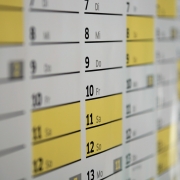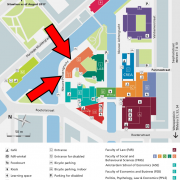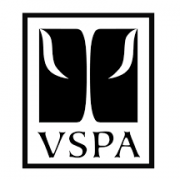The Ombuds student
The Ombudsstudent is an independent contact person, this year that is Elin Swaan. If you ever find yourself in a situation in which you feel that you are being treated unfairly, or if you disagree with something and you don’t know how to solve it, she is your contact person!
Contact:
Email: psyombudsstudent-fmg@uva.nl
The study advisors
- Mascha Kraak
- Irene Luth
- Rebeka Rotter
- Sarah Plunkett
Email
Email: studyadviser-psy-fmg@uva.nl
External link
Please be so kind as to include your full name and student ID number in your email.
Open office hours
Monday to Friday 13.00-15.00, REC G0.23 and 0.24.
Make appointment online
Students can make a personal appointment online
External link. An appointment is set for twenty minutes
Telephone consultation hours
Tuesday 10.00-11.00 T: +31(0)20 525 5855
Wednesday 10:00-11:00 T: +31(0)6 3927 0562
Friday 10.00-11.00 T: +31(0)6 1893 8247
The VSPA
The VSPA is always there for you, for whatever questions or issues you might have. Both personal and study related questions are always welcome! We will try to help you or send you to the best person to contact.
This year we have two appointed trust persons, Heleen and Irmak. They are the specific people in the VSPA to contact when you have personal troubles and you don’t know who to contact. Heleen or Irmak will then help you out, either directly or with finding the right person.
Contact:
You can contact us via Instagram and Facebook by sending us a private message, or you can send an email to info@vspa.nl or you can of course also always stop by at the VSPA room (GS.25)
Trust persons: Heleen@vspa.nl and Irmak@vspa.nl
Teacher
You can always contact your teachers, the people giving the lectures, for questions that are related to the study material.
Contact:
Their contact information is course (and teacher) specific, but you can always find them on canvas or by googling: ‘their name, UvA’.
Tutorial teacher
Your tutorial teacher is there to help you with your study material and studying in general, but they’re also your mentor! You can always contact them with your personal and study-related troubles, don’t be afraid to ask them for help.
Contact:
Every semester you get a new tutorial teacher, you can always email them via canvas and they usually also share their other contact information in one of the first tutorials.
The education desk
If you have other questions about your application, admission or selection, you can contact our education desk. You may experience difficulties reaching the Education Desk via telephone. If you send them an email, they will reply to you shortly.
You can contact the education desk for:
- Your (certified) grade list, which includes your GPA
- Requests about general study information
- To pick up your propaedeutic and bachelor’s degree (after notification)
- Information about test viewings and reassessment requests (1st and 2nd year bachelor)
- Contract education
- Colloquium doctum (21+ tests)
Contact:
Educationdesk-psy@uva.nl
Nieuwe Achtergracht 129-B, room G0.22
1018 WS Amsterdam
Telephone: +31(0)20 525 6770 (between 10:00 – 14:00)




